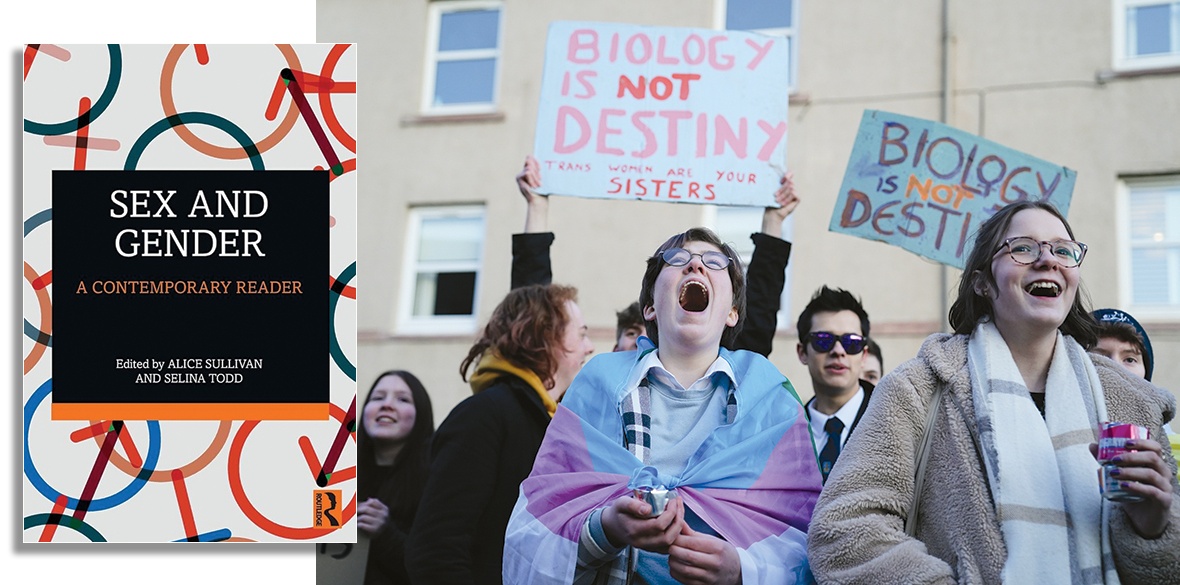This is the last article you can read this month
You can read more article this month
You can read more articles this month
Sorry your limit is up for this month
Reset on:
Please help support the Morning Star by subscribing here
Sex and Gender: a contemporary reader
Alice Sullivan & Selina Todd, Routledge, £35.99
THIS is an important book. It is a scholarly, multi-disciplinary and very well researched exploration of the relationship between sex, gender and gender identity.
It is also a much needed and timely book because, as the editors point out, we are currently witnessing “the erasure of sex categories from language, public policy, discourse and data collection” and this has profound implications for women’s lives.
The authors of the 15 chapters of the book share a broad understanding that sex is biological, immutable and binary, and that gender is an ideological construct which imposes gendered constraints on individuals according to their sex. As such the book’s starting premise is the refutation of gender identity ideology.
In contrast, a scientific definition of sex is provided as well as a thorough analysis of gender identity theory, its evolution and its impact on policy and cultural life.
It’s a sign of the times in which the material reality of sex is denied, that a book even needs to contain a chapter entitled Two Sexes. This is written by two biologists (Emma Hilton & Colin Wright) who carefully and scientifically dissect the arguments which seek to deconstruct sex as a binary system and which thus renders sex as merely a product of the human mind.
Powerful analyses are employed to refute the comparatively recent emergence of gender identity ideology.
Jane Clare Jones traces the sex denialist ideology from a materialist feminist gender critical perspective.
The rejection of the immaterialist theory and practice of gender identity is a theme which runs through all the chapters of this book implicitly or explicitly.
Several authors refer to the influential work of Judith Butler as providing the intellectual foundation of queer theory underpinning trans ideology. Butler argues that sex is a heteronormative cultural construct and thus that “womanhood” is merely a social construction. It was on this basis, as Selina Todd shows, that sex denialists and gender identity theorists attacked second wave feminism.
The Women’s Liberation Movement of the 1960s and 1970s argued that gender as a social and political construct (whether or not performative!) had to be challenged if women were to combat their oppression.
A feminist gender critical approach to issues of policy and cultural life is essential to ensure that women are not erased as a sex category. The current conflation of sex and gender is shown, by leading authorities in their respective fields, to have disadvantaged women and girls in the legal system, in sport, in education, in the field of culture and in medical and psychological practice.
This is compounded by the current unwillingness of many UK public bodies, influenced by highly effective lobbying groups, to collect data on sex. Examples of this are given (by Alice Sullivan et al). The NHS, for instance, has replaced data fields denoting biological sex with fields denoting gender identity.
Shereen Benjamin shows that the long standing challenge to sexism in the education system is now being undermined by “trans inclusive” official educational guidance widely used in many schools. Such guidance, derived from queer theory, has regressive features in that it sees gender as an individual attribute to be acknowledged and welcomed.
This, as Benjamin argues, reverses the feminist aim of challenging the gender stereotypes which constrict the life chances of girls as well as boys. A similar point is made by Susan Matthews in her analysis of children’s literature which is now, she argues, is dominated by the 21st century preoccupation with the “transgender child.”
This short review cannot do justice to the other topics covered in this book. Suffice to say that collectively it offers robust methodological, theoretical and empirical insights from a feminist perspective into one of the most divisive debates in contemporary political life.










